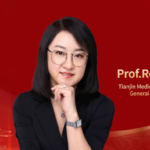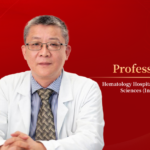Children with Acute Lymphoblastic Leukemia (ALL) have a five-year overall survival (OS) rate exceeding 90%, but about 20% still experience disease relapse. Treating these relapsed or refractory ALL cases is a clinical challenge. Recently, immunotherapy and ADC (Antibody-Drug Conjugates) have offered new directions. During the 4th China Hematology Development Conference held in Tianjin, Professor XiaoFan Zhu , Director of the Pediatric Hematology Center at the Institute of Hematology, Chinese Academy of Medical Sciences, shared advancements in immunotherapy and ADC treatments for pediatric ALL.
“Oncology Frontier – Hematology Frontier“: In recent years, immunotherapy has made groundbreaking progress in treating pediatric ALL, especially in children with relapsed or refractory ALL.
Professor XiaoFan Zhu: The significant improvements in survival rates and quality of life for ALL children due to recently approved immunotherapy protocols in China. These therapies are primarily for relapsed and refractory patients. The recent ASH (American Society of Hematology) conference also presented multiple studies on immunotherapy. If these immunotherapies could be used in frontline treatment for high-risk pediatric ALL, it could reduce the need for hematopoietic stem cell transplantation in most patients. Studies have also shown promising initial results. For infant leukemia, combining traditional chemotherapy with immunotherapy has raised the 2-year OS rate from approximately 60% to 90%. This strategy, which reduces toxicity while increasing effectiveness, is a significant boon for these patients.
“Oncology Frontier – Hematology Frontier“: During the ASH conference, the COG-AALL03N1 study analyzed the relationship between the intensity of 6-mercaptopurine (6MP)/methotrexate (MTX) dosage during the maintenance phase of ALL treatment and the risks of toxicity and relapse.
Professor XiaoFan Zhu : This study as highlighting differences in treatment responses. For instance, children of different ethnicities show significant tolerance differences, with some experiencing severe bone marrow suppression, neutropenia, and increased liver toxicity at low doses. This study used pharmacometabolomics and analyzed patients’ genetic changes (like NUDT15 mutations) to predict tolerance and treatment toxicity, guiding precise medication dosages while avoiding chemotherapy toxicity, allowing patients to receive adequate treatment.
The AHOD1331 study, a large Phase III trial by the Children’s Oncology Group (COG) on BV (Brentuximab Vedotin) combined with chemotherapy for treating children with initial Hodgkin’s Lymphoma (HL), was another focus at the ASH conference. Lymphomas are usually categorized as indolent, aggressive, or highly aggressive, with the latter being relatively rare in children. Brentuximab Vedotin has been available in China for nearly three years, previously used as a second-line treatment for refractory, relapsed, and high-risk patients. This ADC drug targets CD30-positive cells, delivering cytotoxic drugs directly to tumor cells. The recent study explored its use in newly diagnosed patients, showing promising efficacy and safety. The hope is to use ADCs like BV to lessen the toxicity of traditional chemotherapy while more effectively targeting tumor cells, thereby improving treatment outcomes for patients.

Professor XiaoFan Zhu
Director of the Pediatric Hematology Center, Institute of Hematology, Chinese Academy of Medical Sciences; Chief Physician, Ph.D. Supervisor; Vice President-elect of the Pediatric Hematology-Oncology Committee, Chinese Anti-Cancer Association; Head of the Pediatric Hematology Group, Tianjin Medical Association; Vice Chairman of the Tianjin Pediatric Oncology Committee; Editorial Board Member of journals like “Chinese Journal of Pediatrics” and “Chinese Journal of Hematology”; Recipient of awards including the Second Prize of the National Natural Science, First Prize of Tianjin Natural Science, Wuzhou Women’s Science and Technology Award, Soong Ching Ling Pediatric Medicine Award; Recognized as a Tianjin Expert with Outstanding Contributions; Leads numerous national and provincial-level projects; Author of over a hundred papers, with several published as first or corresponding author in journals like “Nature Genetics”, “JAMA Oncology”, “Lancet Oncology”, “Nature Cell Biology”, “Nucleic Acids Research”, “Blood”, and “British Journal of Haematology”.


